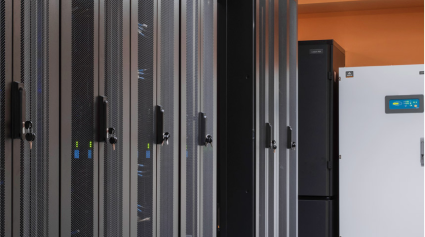The technology sector is one of the most demanding but rewarding sectors to work in – from the latest innovations to the generous salaries on offer in this industry, there are plenty of opportunities to expand the IT skillset; which in turn, leads to promising promotions and pay rises. Yet with a plethora of different disciplines to choose from, how do you determine which role best suits your experience and interests?
With numerous academic institutions offering specialized degrees as well as businesses featuring internships, there are plenty of prospective career paths to take. From taking into account which route to follow (starting out as an intern then undertaking cross-departmental duties) to recognizing the relevant qualifications for your chosen job, you’re not limited in your options – with plenty of support and resources available to help you find the right position that complements your background.
Recognizing industry trends
Working in the fast-paced technology marketplace means you have to remain up-to-date with the newest releases and understand how this impacts your sector – so for instance, if there’s an increased demand in a particular business service, you must be able to respond quickly; for example, housing more servers to accommodate more disk storage. According to the Senior Vice President of IDC’s Enterprise Infrastructure, Consumer, Network, Telecom and Sustainability Research, Vernon Turner, he believes that there are four key data center networking industry trends:
- Cloud computing
- Big data analytics
- Mobility
- Social Business
Additionally, by anticipating any trends, this gives you leverage – as you can build up your knowledge and therefore, place you ahead of your competition. With more and more people vying for coveted roles within the technology industry, this has meant many employers have had to make the hiring process much harder – from assigning complex assessments to conducting interviews over several stages.
As a result, prospective employees have had to widen their expertise – not only having an excellent academic and vocational record, but possessing unique qualities in order to differentiate them from other candidates. While anyone can learn from educational materials and historic events, going that extra mile to do your research and predict industry trends will place you in good stead – as not only can your specialized knowledge benefit the company when developing future products, but also shows your most important asset: that you see a future with the company, and how you intend to carve your career within the data center industry.
Transferable skills
The first attribute you will need – applicable to any job – is to have a keen interest in your profession. Are you more inclined to be behind-the-scenes as a data center engineer? Maybe you’d prefer to be customer-facing and be a data center technical project manager? Establish your strengths and weaknesses, that way you can filter your talents into the appropriate role. While you may have an idea in mind about your preferred job, nowadays it’s commonplace for specific roles requiring cross-functional responsibilities.
You may be required to demonstrate both quantitative and qualitative qualities – so it’s important to have a broad spectrum of understanding data as well as being able to carry out extensive research. For example, a data center technician’s job often encompasses a number of different responsibilities, providing vital support to a team. Certain tasks include troubleshooting any failures, ensuring equipment is configured correctly as well as maintaining best practice guidelines (which at times may require customer communications). However, due to the non-stop nature of the data center, it’s not unheard of to do shift work – so ensure your schedule is flexible, as you may need to work nights. Additionally, emergencies can take place any time (such as data recovery) – so be prepared to be called out at unsociable hours!
Above all, you should possess excellent communication skills – as communicating any type of issue is imperative to ensure the smooth running of a data center. Supporting various team members as well as being in direct contact with your supervisors contributes to an excellent support network, and given the various elements involved in a data center environment, makes it crucial that you can step in and help out with a duty normally maintained by another member of the team.
Certifications
Thanks to the increasing popularity of the technology sector, there is an abundance of learning opportunities available – both online and offline. Many businesses are always looking to expand their customer base, which is usually achieved by expanding their services – by employers offering their workers the chance to enroll in a course and attain the relevant certification. It’s certainly a great incentive, as adding more skills to the resume results in more responsibilities – leading to a better salary and a managerial position.
The traditional route of completing a degree in software is often favored, as this covers a wide range of skills – then, upon entering a career in the data center, allows the employee to help out in a number of departments; therefore enabling them to determine which elements of the data center profession they are most likely to prefer learning more about.
Here are the most popular data center certifications undertaken by those starting out:
Certified Data Center Management Professional (CDCMP)
The training covers key matters such as data center management as well as basic design issues) while the professional unit advises on management topics (facilities, procedures) and business strategies. Provided through global training firm, CNet Training, other certifications available include Certified Data Center Design Professional (CDCDP) and Certified Data Center Energy Professional (CDCEP) plus many more.
Cisco Certified Network Professional (CCNP) Data Center
Considered by many in the data center industry to be the gold standard, acquiring a Cisco Certified Network Professional (CCNP) Data Center credential is one of the most highly-coveted certifications going. As one of the most respected credentials across the board, this is aimed specifically at technology architects and solutions – developed for candidates with three to five years’ experience with Cisco technologies.
VMware Certified Professional 5 – Data Center Virtualization (VCP5-DCV)
Highly recognized for both its traditional data center networking and cloud management aspects, candidates studying for this certification must fully understand Domain Name System (DNS), as well as have the know-how to install, manage and scale VMware vSphere environments (it’s recommended to have at least six months’ experience with VMware infrastructure technologies prior to taking the VCP5-DCV assessment).
While there are numerous other certifications to take – such as the BICSI Data Center Design Consultant (DCDC) – the three mentioned are the best-known, renowned for their world-class reputation. However, this is only a starting point; and is completely dependent on your experience and which specialist area you choose to work in.
Career Progression
Just as technology is constantly advancing, so do data centers continually evolve to meet the standards of both the industry as well as its customers. From sustainability to efficiency, the various disciplines involved are becoming more complex; meaning that career progression within the data center environment is anything but standard. As mentioned previously, showcasing transferrable skills allowing you to lend your services across a number of different departments is becoming increasingly important – which in turn, can present you with specialist managerial opportunities.
Below is a selection of job roles in the data center industry that you can progress into:
Data Center Test Engineer
Tasked with setting up environments in order to test PC and network solutions within the data center, while also exposing any issues and identifying major contributing factors.
Data Center Environmental and Safety Technician
Offering support and monitoring the various environmental, health and safety activities within the data centers, it’s your responsibility to investigate any safety issues while conducting environmental training.
Infrastructure Architects
Responsible for the design of the data center, infrastructure architects typically take care of any supporting services such as cooling and power – while project managers ensure any major installations are well maintained.
Data Center Manager
Overseeing the general running of the facilities, it’s imperative that data center managers have a wide range of knowledge of all things data center-related – from understanding about network and operating systems to knowing the correct protocols and processes.
Electrical Engineer, Data Center R&D
Working in a team that helps design and build the software, hardware and networking technologies, your role as a hardware engineer sees you through developing small scale projects right through to high volume manufacturing.
Data Center Maintenance Planner/Scheduler
As a data center maintenance planner/scheduler, this involves communicating both internally as well as maintaining regular contact with clients. Planning requirements for customers and managing entire project lifecycles, you ensure efficient execution of the various planning and scheduling processes – additionally, providing equipment-related knowledge and technical expertise on improving preventive maintenance tasks.
Data Center Control Systems Staff Engineer
This role usually entails at least 10 years’ experience as well as a relevant degree, with experience in critical infrastructure such as industrial automation, SCADA systems and PLCs. Providing technical support to the engineering and operations teams, your responsibilities encompass resolving any critical electrical controls related matters along with handling any procurement and vendor management issues.
Whether you choose to be a DCIM Specialist due to your interests lying in infrastructure, or prefer to be an in-house dedicated programmer, there is a number of academic and vocational qualifications to help you achieve your desired career goal. Typically, staff are separated into two categories – one team consists of implementation managers (meeting new customer requirements) with the backing of engineers (who look after installation and cabling). The operational team are tasked with equipment configuration and maintaining it once installed, consisting of senior employees specializing in areas such as storage and backup, database management, as well as customer service representatives.
A day in the life of a data center employee is never routine, and at times, can be stressful – yet the breadth of skills learned can be acquired extremely quickly. This allows you to attain a senior level relatively quickly while developing a good understanding of specialist areas; and as no two customers are ever the same, only serves as the perfect breeding ground for data center employees looking to expand both professionally as well as personally. As a sector that continues to grow in popularity and size each day, it’s a sector that boasts one of the lowest unemployment rates – so if you’re looking for a secure and highly gratifying job, then working in the data center industry is the ideal career for you.



